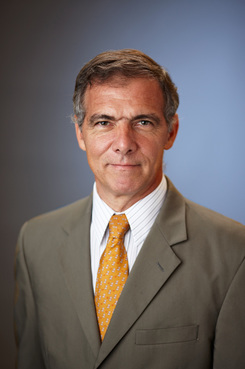As Shutdown Grinds Some Practices to a Halt, Law Firms Face 'Uncharted Waters'
Meanwhile, many defense lawyers aren't hearing from their counterparts in the SEC's enforcement division. “Since the new year, those cases have been deadly quiet,” said Robert Anello, a partner at boutique Morvillo Abramowitz Grand Iason & Anello in New York.
January 11, 2019 at 03:40 PM
6 minute read
The original version of this story was published on New York Law Journal
 A sign announcing the closure of the National Archives due to a partial government shutdown is displayed in Washington, D.C., on Dec. 27, 2018. (Photo: Andrew Harrer/Bloomberg)
A sign announcing the closure of the National Archives due to a partial government shutdown is displayed in Washington, D.C., on Dec. 27, 2018. (Photo: Andrew Harrer/Bloomberg)
Capital markets lawyers can't close on initial public offerings. Antitrust lawyers aren't getting votes on mergers. And white-collar defense lawyers are delaying presentations before the Securities and Exchange Commission.
Some legal activities have nearly ground to a halt amid the federal government shutdown. While law firm lawyers are not losing pay now—unlike some of their counterparts in the federal government—several legal observers said it's very possible the shutdown will be felt in firms' first quarters' financial results. That's because several activities, including deals and court appearances, will be pushed back.
“Yes, it certainly could put a crimp in our business. It's not devastating to our business, but we're certainly in uncharted waters,” said Gregory Sichenzia, co-founder of Sichenzia Ross Ference. The midsize firm in New York represents many publicly-traded companies and investment banks in corporate finance matters and ongoing SEC reporting.
“Having the SEC shutdown really cramps capital formation, and, if these companies are not able to raise money, they will not pay their lawyers,” he added.
Jeffrey Lowe, practice leader of recruiting firm Major Lindsey & Africa's law firm practice group, confirmed that law firms “might see a dip [in billable hours] in the first quarter, depending on how much longer this goes on.”
“I just can't believe there's enough alternate work going on to make up for what's happening when the [government] offices aren't open,” he added.
'Gone Fishing'
Sichenzia and several capital markets lawyers said their work hasn't dried up—at least not yet—because a number of actions need to be taken in any offering transaction, and they can front-load some tasks now.
 Alan Denenberg, Davis Polk (Photo: Jason Doiy/ALM)
Alan Denenberg, Davis Polk (Photo: Jason Doiy/ALM)In some cases, there may be more billable hours on matters, he said, because the firm is trying to explore financing options for clients. But it's uncertain whether the firm can collect on those hours. Some tech companies depend on capital markets to stay in business, he said. “If you can't offer securities, you can't raise money,” he said. “You can bill the time, but how do you collect?”
It's not just IPOs that have stalled, he said, adding that it's secondary offerings and certain mergers that require registration statements before the SEC.
The firm has filed registration statements, and “there's no one on the other side to review them. It's kind of like an airport without any air traffic controllers,” Sichenzia said. “We need the SEC. They're the gatekeeper, and they're basically gone fishing.”
Alan Denenberg, a corporate partner at Davis Polk & Wardwell in Northern California, said so far his practice has not slowed down because the IPO process with the SEC is “long and interactive,” and companies can still file and submit confidentially—even if no one is reviewing the documents.
But once the SEC gears back up, it's unclear how the agency will process all the filings at once. “The bottleneck is going to be really interesting to see how they unwind it, because with each passing day, there are going to be more filings, and work is just piling up,” Denenberg said. “The longer it goes on, this bottleneck will slow things down more.”
If the shutdown ends within a week, Denenberg said, he sees minimal to no impact on law firm practices. But if it continues much longer, first quarter collections could see a slide for lawyers who have IPO-heavy practices, he and others said.
Even if the shutdown does end very soon, Sichenzia said companies and their lawyers may still be dealing with the consequences afterward. Lawyers are worrying about a backlog of matters awaiting the SEC when it returns. Most companies' financials statements go stale—meaning they're no longer considered timely for the SEC's purposes—after mid-February, Sichenzia said, and they may have to wait until the end of March when they have new financial statements.
“The first quarter could be severely impacted,” Sichenzia said. “Clearly, if they're not closing their deals, they're not paying their lawyers. It will certainly impact small and large firms.”
Anna Pinedo, a capital markets partner at Mayer Brown, noted that January historically tends to be a very busy time for IPOs. “Many companies go public in January relying on Sept. 30 numbers,” she said. “This is indeed prime time.”
'Artificial crunch'
Meanwhile, many defense lawyers aren't hearing from their counterparts in the SEC's enforcement division. “Since the new year, those cases have been deadly quiet,” said Robert Anello, a partner at boutique Morvillo Abramowitz Grand Iason & Anello.
 Robert Anello (Courtesy photo)
Robert Anello (Courtesy photo)He hasn't heard from SEC enforcement contacts around the country, while some of his other cases can't move forward because investigators for government agencies are not around, he said.
While some defendants may enjoy the postponement, he said the delay is worse for clients and their attorneys in the long run. When the SEC does open, “you may not get the same attention and deliberation that is necessary in securities matters” due to the work that's piled up, Anello said.
For now, he said the shutdown hasn't financially affected white-collar defense practices such as his because “95 percent of the work is outside the courtroom,” including research and fact-gathering with witnesses. Still, Anello said presentations before the SEC and some court dates will have to be pushed back.
'Pencils down'
For Ted Hassi, a Debevoise & Plimpton antitrust partner, the practical effect for his practice is that deadlines are being put off, calls aren't being answered and “pencils are down until the government is back.” For instance, one of his clients has a merger divestiture awaiting a commission vote at the FTC, so the deal can't close now.
Still, he said the shutdown is having a small effect on billable hours and, for now, he can work on tasks that don't involve the government or can work in preparation for when the government opens. But, he said, “the longer it goes on, the less there is of that other stuff.”
Hassi, a former FTC chief trial counsel, said he's “much more concerned” about former colleagues at the FTC and friends at the Justice Department.
Richard Parker, an antitrust partner at Gibson Dunn & Crutcher, said in cases where there is no deadline at the Justice Department and FTC, “work has necessarily come to a halt, which is unfortunate for the parties.” The shutdown, he said, “has affected virtually every matter I have going on.”
This content has been archived. It is available through our partners, LexisNexis® and Bloomberg Law.
To view this content, please continue to their sites.
Not a Lexis Subscriber?
Subscribe Now
Not a Bloomberg Law Subscriber?
Subscribe Now
NOT FOR REPRINT
© 2025 ALM Global, LLC, All Rights Reserved. Request academic re-use from www.copyright.com. All other uses, submit a request to [email protected]. For more information visit Asset & Logo Licensing.
You Might Like
View All
2024 Marked Growth On Top of Growth for Law Firm Litigation Practices. Is a Cooldown in the Offing for 2025?

Big Company Insiders See Technology-Related Disputes Teed Up for 2025

Litigation Leaders: Jason Leckerman of Ballard Spahr on Growing the Department by a Third Via Merger with Lane Powell
Trending Stories
- 15th Circuit Considers Challenge to Louisiana's Ten Commandments Law
- 2Crocs Accused of Padding Revenue With Channel-Stuffing HEYDUDE Shoes
- 3E-discovery Practitioners Are Racing to Adapt to Social Media’s Evolving Landscape
- 4The Law Firm Disrupted: For Office Policies, Big Law Has Its Ear to the Market, Not to Trump
- 5FTC Finalizes Child Online Privacy Rule Updates, But Ferguson Eyes Further Changes
Who Got The Work
J. Brugh Lower of Gibbons has entered an appearance for industrial equipment supplier Devco Corporation in a pending trademark infringement lawsuit. The suit, accusing the defendant of selling knock-off Graco products, was filed Dec. 18 in New Jersey District Court by Rivkin Radler on behalf of Graco Inc. and Graco Minnesota. The case, assigned to U.S. District Judge Zahid N. Quraishi, is 3:24-cv-11294, Graco Inc. et al v. Devco Corporation.
Who Got The Work
Rebecca Maller-Stein and Kent A. Yalowitz of Arnold & Porter Kaye Scholer have entered their appearances for Hanaco Venture Capital and its executives, Lior Prosor and David Frankel, in a pending securities lawsuit. The action, filed on Dec. 24 in New York Southern District Court by Zell, Aron & Co. on behalf of Goldeneye Advisors, accuses the defendants of negligently and fraudulently managing the plaintiff's $1 million investment. The case, assigned to U.S. District Judge Vernon S. Broderick, is 1:24-cv-09918, Goldeneye Advisors, LLC v. Hanaco Venture Capital, Ltd. et al.
Who Got The Work
Attorneys from A&O Shearman has stepped in as defense counsel for Toronto-Dominion Bank and other defendants in a pending securities class action. The suit, filed Dec. 11 in New York Southern District Court by Bleichmar Fonti & Auld, accuses the defendants of concealing the bank's 'pervasive' deficiencies in regards to its compliance with the Bank Secrecy Act and the quality of its anti-money laundering controls. The case, assigned to U.S. District Judge Arun Subramanian, is 1:24-cv-09445, Gonzalez v. The Toronto-Dominion Bank et al.
Who Got The Work
Crown Castle International, a Pennsylvania company providing shared communications infrastructure, has turned to Luke D. Wolf of Gordon Rees Scully Mansukhani to fend off a pending breach-of-contract lawsuit. The court action, filed Nov. 25 in Michigan Eastern District Court by Hooper Hathaway PC on behalf of The Town Residences LLC, accuses Crown Castle of failing to transfer approximately $30,000 in utility payments from T-Mobile in breach of a roof-top lease and assignment agreement. The case, assigned to U.S. District Judge Susan K. Declercq, is 2:24-cv-13131, The Town Residences LLC v. T-Mobile US, Inc. et al.
Who Got The Work
Wilfred P. Coronato and Daniel M. Schwartz of McCarter & English have stepped in as defense counsel to Electrolux Home Products Inc. in a pending product liability lawsuit. The court action, filed Nov. 26 in New York Eastern District Court by Poulos Lopiccolo PC and Nagel Rice LLP on behalf of David Stern, alleges that the defendant's refrigerators’ drawers and shelving repeatedly break and fall apart within months after purchase. The case, assigned to U.S. District Judge Joan M. Azrack, is 2:24-cv-08204, Stern v. Electrolux Home Products, Inc.
Featured Firms
Law Offices of Gary Martin Hays & Associates, P.C.
(470) 294-1674
Law Offices of Mark E. Salomone
(857) 444-6468
Smith & Hassler
(713) 739-1250







